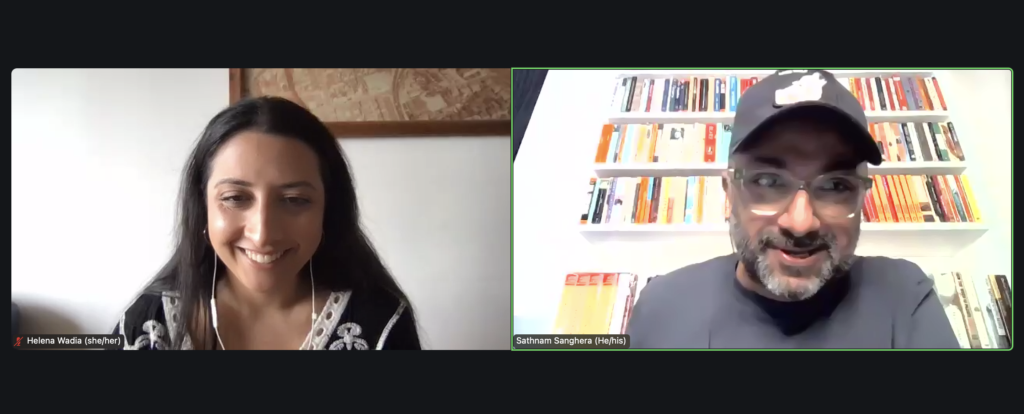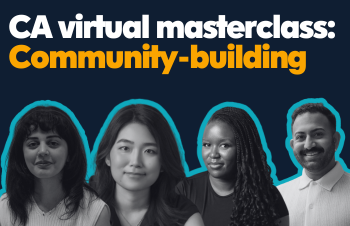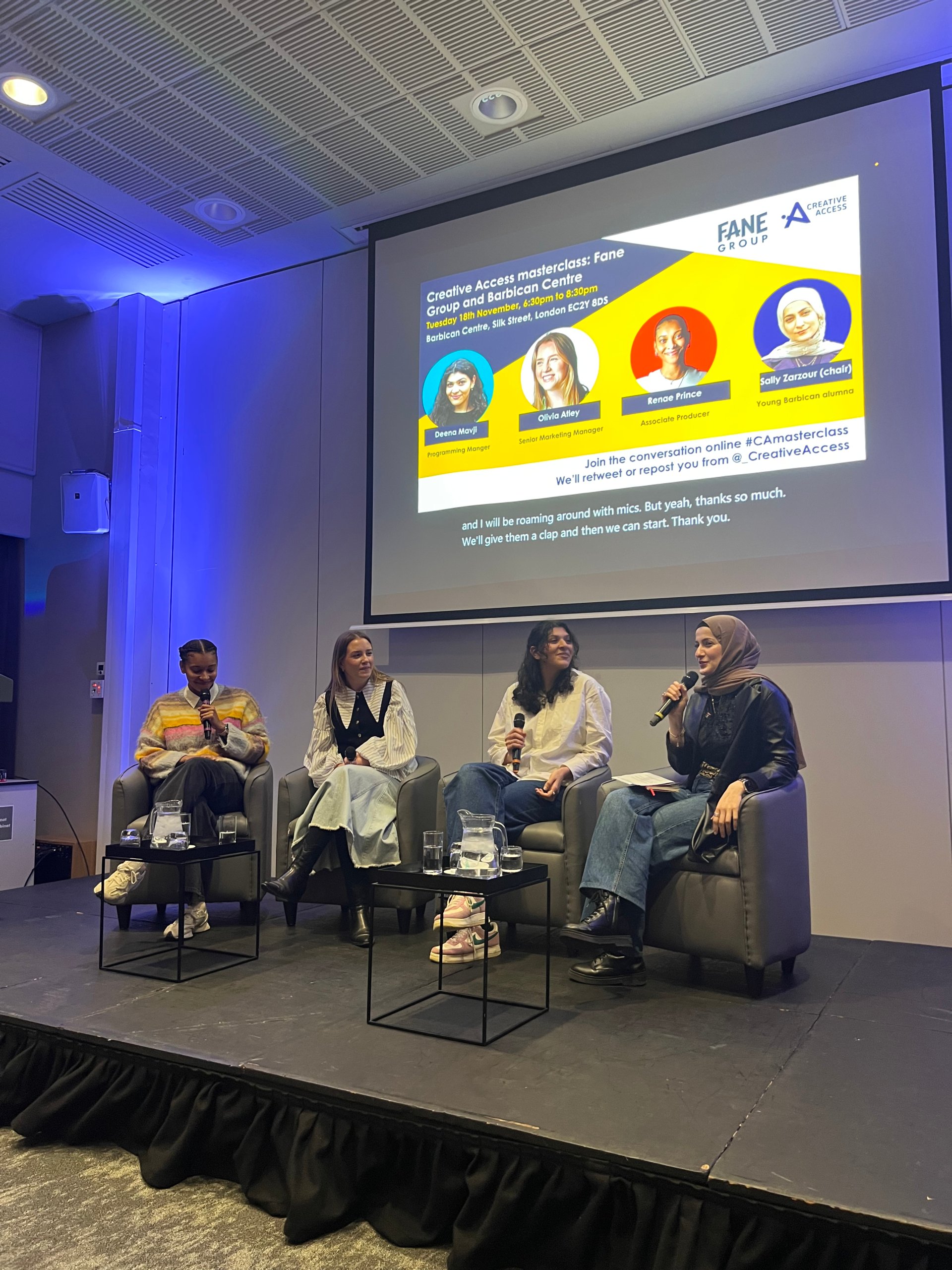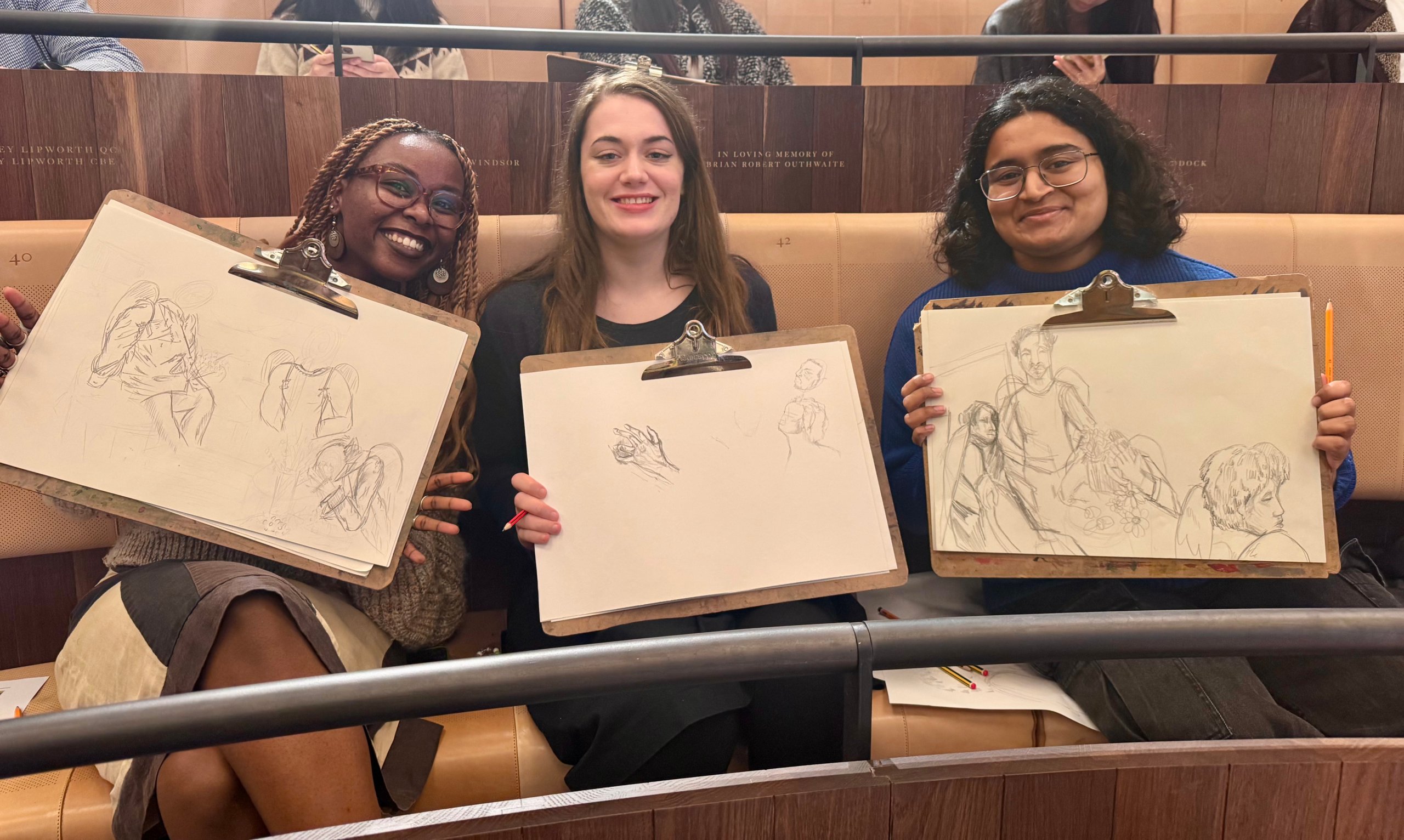Our latest Creative Access Masterclass took place online with acclaimed author and journalist Sathnam Sanghera in conversation with award-winning multimedia journalist, Media Storm podcast co-host, and former Creative Access intern Helena Wadia.
With a career spanning memoir, fiction, non-fiction (including the Sunday Times bestseller Empireland), and documentary presenting, Sathnam is an incredible storyteller. He has worked as a news reporter, written widely as a columnist, and also serves on the advisory board at Creative Access.

On class, ethnicity and DE&I in the creative industries: “In truth, I think [being a person of colour] it’s given me opportunities, and I think we really need to be more nuanced in the DE&I space, especially as DE&I is under threat. The fact is you are just as unlikely to see a white working-class person on Fleet Street as you are a Black writer.
Increasingly, we need to recognise that actually certain people of colour come from very privileged backgrounds. Some of the poshest people I know are British Asian but the word ‘Asian’ incorporates a huge demographic… So, what does the word Asian mean? What is the significance of colour? We’ve got to paint in less broader strokes now and be more focused about where the disadvantage is and where we need to do work.”
On what you can learn from journalism: “I think for most people, it’s good to do different types of writing… I’m so glad I was a news reporter because it taught me so much about news gathering and fact checking. I’m so glad I didn’t become a columnist until my late 20s; I think you need to know a bit about the world and accumulate experience. I know I sound like a dad, but you also need to learn how to write, you need other get the crap out of your system… It’s good to try different forms of journalism and it enables you to work out what you like doing and what you’re good at; and journalism is about explaining complicated things clearly.”
On challenging narratives in his book, Empireland: “I didn’t study a single Brown author until my final term of university – not a single Brown character or author. Salman Rushdie I was finally allowed to read and Hanif Kureishi, and even at the time I didn’t realise because it takes a while to understand your own life, right?
I got to my 40s and I was researching a novel about this Indian guy who came to London in the 18th century and I thought oh my god, I don’t know anything about the British empire and yet it explains everything about me! It explains why my parents came, it explains why there’s a lot of British Asians everywhere, it explains why people love curry in Britain, it explains why we drink gin and tonics, it explains our racism, our multiculturalism, our politics, Brexit, and suddenly I saw it everywhere, so it just kind of blew my mind. Also, I couldn’t find a book that explained it clearly… I just wanted a book that explained it in a neutral way and I guess I kind of wrote that book.”
How to use social media to your advantage: “Your generation has an advantage that I never had – social media. Who are the most enthusiastic users of social media? Journalists! Every journalist has social media. I think X is increasingly not useful and toxic, get on Blue Sky. Journalists are always looking for ideas, they’re needy people, so read their stuff, reply to them, ask intelligent, non-aggressive questions. That is amazing in a world where every journalist gets trolled, just to have an intelligent response. There’s a great opportunity to connect with journalists using the internet who were in my day, unapproachable people.”
Navigating writer’s block: “I don’t believe in writer’s block because I write for a living and if I get a block, my family starve, so having to write for money is a really good solution… Also, the world doesn’t need more content, no one’s begging you to write a book!
In a way you’ve got to really want to write. You know sometimes people ask, ‘what you should you say to encourage writers?’ but I don’t need to encourage writers, because if you want to be one then you’re going to do it anyway. It’s like being a footballer, it’s an uncontrollable urge, and if you don’t have that urge, maybe you should do something else.”
How to grow your career at your workplace: “You can only achieve what you can dream and what you can envisage… so work out what you want to do and be ambitious and then talk about it, tell people, because that puts the thought in people’s brain and then people connect you with that. Theres a lot of timidity amongst young people, people of colour, working class people, who’ve never had anyone in their family do anything that they want to do. So, you almost have to create your own dreams and manifest… manifest with purpose and specificity. Find people who have the job you want and talk about it.”
On the writers he admires: I probably admire book writers more because in a way, you want the people you admire to be doing things you can’t do yourself. So Hilary Mantel; there isn’t a single sentence Hilary Mantel wrote in Wolf Hall that I feel I could write. As writers, we should read stuff that’s better than what we write. So, I try to increasingly read novels and increasingly those novelists are women. I do feel women are the best writers around at the moment.
These are just some of the highlights of this brilliant conversation – make sure you head to our YouTube and watch the full conversation here.
Interested in joining another Creative Access masterclass? Register with us today and keep an eye out on our opportunities board for upcoming masterclasses.




